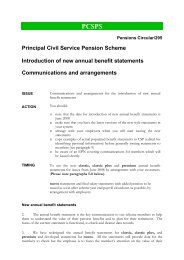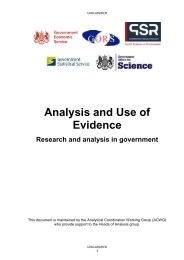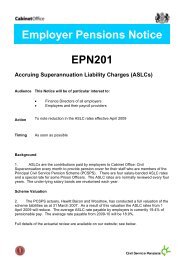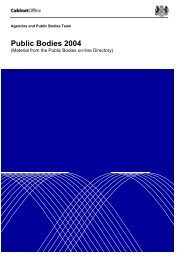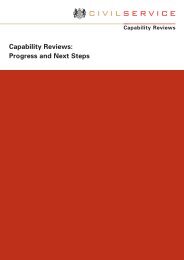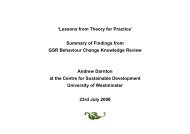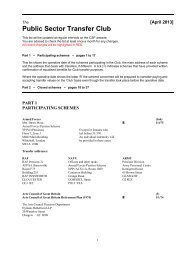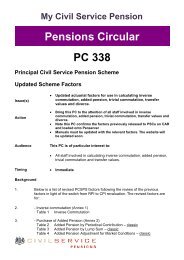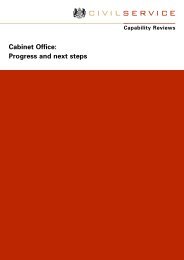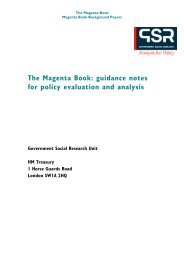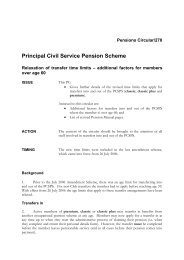Job Evaluation Good Practice Guide - The Civil Service
Job Evaluation Good Practice Guide - The Civil Service
Job Evaluation Good Practice Guide - The Civil Service
You also want an ePaper? Increase the reach of your titles
YUMPU automatically turns print PDFs into web optimized ePapers that Google loves.
InterviewInterviewing skills should be used to obtain factual information about therole’s activities (e.g. avoid loaded and leading questions that might confirmunfounded preconceptions of the role).<strong>The</strong> interview should focus on collecting information about the role in relationto the JEGS factors - it is not for judging the performance of the role holder.<strong>The</strong> current role holder is being consulted as a key source of informationabout the role.Allow sufficient notice and time for the interview. Experience has shown that1 to 2 hours is normally required but, occasionally, some can last longer. Notallowing sufficient time will result in insufficient evidence to assess the roleand will probably cost additional time in going back to the role holder at a laterdate. Rushing through an interview may also reduce the credibility of theevaluator and the JEGS process with the role holder.When it is proving difficult to understand the responsibilities of a role, ask tosee evidence of the role’s activities (e.g. documentation, actually observingprocesses, etc.).Apart from the normal rules about conducting the interview with privacy, it isworth holding the interview as near to the role holder’s workplace as possible.This will make it easier to obtain supporting evidence about the role. Also,interviewees will usually feel more comfortable being interviewed close to theirplace of work.Sometimes it can be useful to have people sitting in on JEGS interviews. Forexample, a trade union representative to support the overall fairness of theprocess, or a “specialist” role holder who can help to ensure that theinterviewer understands all of the information received and does not leave outany key areas.At the end of the interview the interviewer should ensure that, if necessary,either party can get back to the other in order to clarify information.Ensure that all analysts are briefed to give common messages on how JEGSis being applied in the organisation and on the information that will be issuedas a result.Some organisations have designed a handout to cover the last 2 points. Atthe end of the interview the role holder is issued with a handout which givesthe analyst’s name and telephone number and explains how the JEGSprocess will progress following the interview.Write Up<strong>The</strong> write up should be based on evidence and examples of what the roleactually does.<strong>The</strong>re should be an agreed format for written evidence within yourorganisation.7




